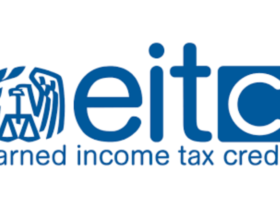Filing a tax return is often seen as a chore reserved for those with complex financial situations or significant tax liabilities. However, even if you don’t owe any taxes, there are several hidden benefits to filing a tax return. From securing potential refunds to building a financial history, here’s why filing your tax return can be advantageous, even when you’re not required to pay taxes.
1. Claim Refundable Tax Credits
One of the most significant benefits of filing a tax return when you don’t owe taxes is the opportunity to claim refundable tax credits. These credits can provide a substantial financial boost:
- Earned Income Tax Credit (EITC): Designed for low to moderate-income workers, this credit can result in a refund even if you don’t owe any taxes. The amount varies based on income, number of children, and filing status.
- Child Tax Credit (CTC): This credit offers financial support for families with children. If you qualify, you can receive a portion of this credit as a refund.
- American Opportunity Credit: If you’re a student or have dependents in college, this credit can cover educational expenses and may result in a refund.
2. Establish a Record of Income
Filing a tax return creates an official record of your income. This can be beneficial for:
- Loan Applications: Lenders often require proof of income when you apply for loans, mortgages, or credit cards. A filed tax return can serve as documentation of your income, even if you’re not required to pay taxes.
- Rental Agreements: Landlords may ask for proof of income when you apply for a lease. Providing your tax return can support your rental application.
3. Build a Financial History
Consistent filing of tax returns helps build a comprehensive financial history, which can:
- Facilitate Future Financial Transactions: A solid history of tax filings can simplify future financial transactions, including obtaining credit, refinancing loans, or applying for government benefits.
- Provide Proof of Income for Financial Planning: Accurate records from tax returns can help with budgeting, financial planning, and tracking long-term financial goals.
4. Avoid Future Penalties
Even if you don’t owe taxes now, filing regularly can help avoid potential issues in the future:
- Prevent Penalties for Non-Filing: Failing to file a tax return when required can result in penalties. By filing regularly, you reduce the risk of missing a filing requirement and incurring penalties.
- Stay Updated on Tax Laws: Regular filing ensures you stay informed about any changes in tax laws that might affect your financial situation.
5. Qualify for Government Benefits
Many government programs and benefits require a filed tax return for eligibility:
- Subsidies and Assistance Programs: Programs such as health insurance subsidies under the Affordable Care Act or housing assistance often require a recent tax return for qualification.
- Social Security Benefits: Filing tax returns helps ensure accurate reporting of your income, which can affect your future Social Security benefits.
6. Simplify Future Tax Returns
Filing annually helps keep your financial records organized and simplifies the process of filing future returns:
- Organized Financial Records: Regularly filed returns help maintain organized records of income and expenses, making it easier to prepare future tax returns.
- Easier Updates: If you need to amend previous returns or apply for tax credits, having a consistent filing history can simplify the process.
7. Track and Claim Deductions
Even if you don’t owe taxes, filing a return allows you to track and claim deductions that might otherwise be overlooked:
- Medical and Charitable Deductions: If you have deductible expenses like medical bills or charitable contributions, you can claim these on your tax return, potentially resulting in a refund or reducing your taxable income in future years.
8. Access to Tax Records
Filing a tax return provides you with official records of your financial status:
- Documentation for Tax Purposes: Keeping copies of your filed tax returns is essential for future reference, especially if you need to provide proof of income or deductions for audits or disputes.
- Historical Data: Access to past tax returns can help you track your financial progress and make informed decisions about future financial planning.





Leave a Reply